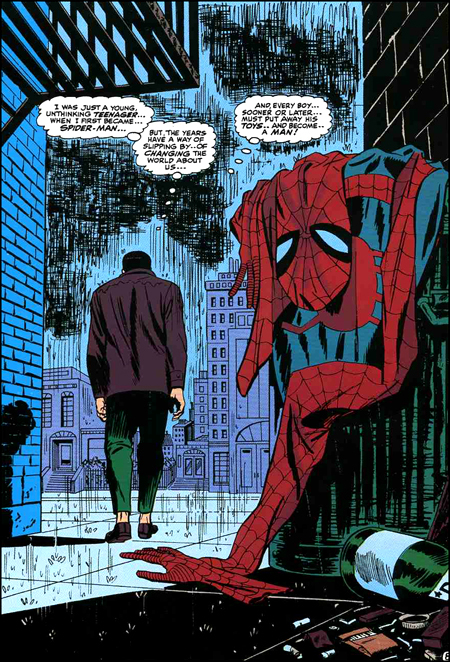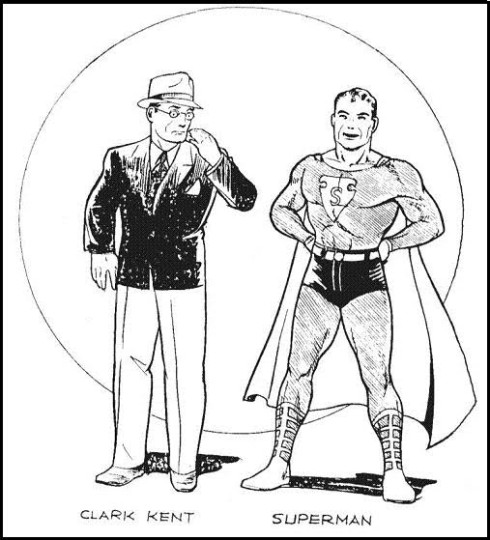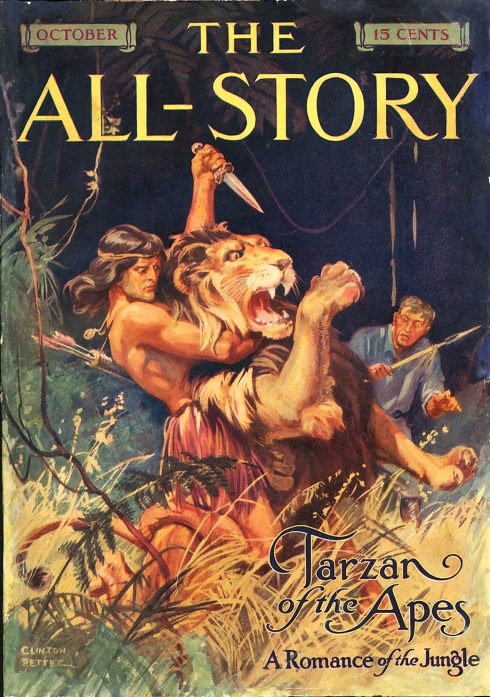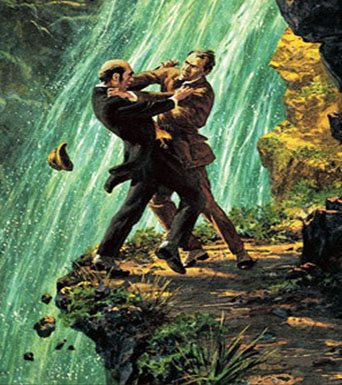by Alex Buchet
Art by John Romita,Sr, and Mike Esposito
When I was a child, I spake as a child, I understood as a child, I thought as a child: but when I became a man, I put away childish things.– Paul the Apostle,1 Corinthians 13:11
Over the past seven chapters of this article, we have traced the evolution of the superman from the eighteenth century up to 1938 and the coming of the Superman comic book character: our history stops there, as the comic book medium was soon awash with superheroes, and would remain so until the present day.
Indeed, it is depressing to note, the commercial comic book is overwhelmingly dominated by the superhero at the expense of other popular genres. And the comic book superhero is at present — by consensus of its aficionados — in a state of decadence.
We’ve seen , with the death of the dime novel, of the newspaper serial and of the pulp magazine, how entire pop media can shrivel away. The comic book magazine may be fated to join these dinosaurs in extinction.








